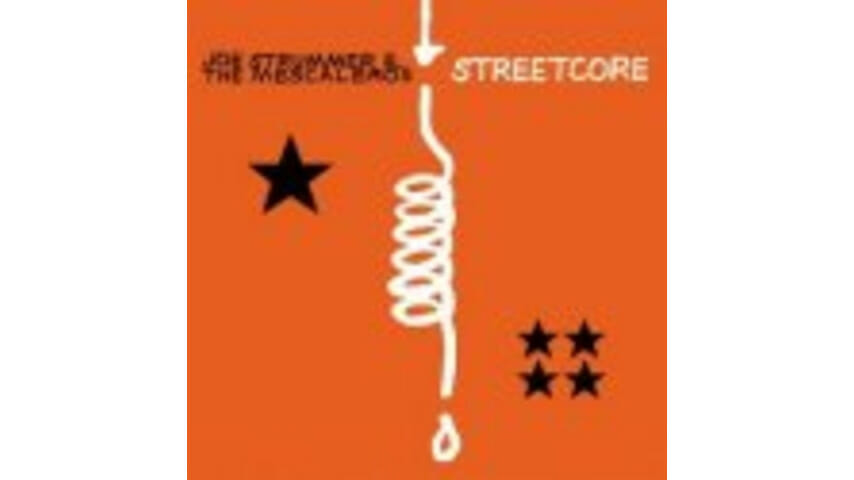Joe Strummer & The Mescaleros – Streetcore

With the release of the posthumous Streetcore, Joe Strummer fans have another bittersweet reminder of just what was lost last year when the 50-year-old Clash legend died from an undiagnosed congenital heart condition.
As the bull’s-eye on stage and off for the incendiary Clash, and then as the helmsman of the up-and-coming Mescaleros, Strummer was an electrifying presence—one of rock’s greatest front men. At age 50, he was still the jackhammer-legged, jive-talking street commando and beat prophet of justice whose performances were more exorcism than entertainment. After nearly a decade of relative silence, Strummer was again the leader of a band that mattered. In the midst of recording the group’s third record, Streetcore, Strummer and the Mescaleros—Martin Slattery (keys, guitars, sax), Scott Shields (guitar), Simon Stafford (bass) and Luke Bullen (drums)—seemed poised to recruit legions of converts when the singer suddenly passed away. Streetcore may not be the finished product the Mescaleros intended, but the best cuts of Strummer’s second go-round reside here. From the reggae-tinged, foot-stomping album opener (and first single), “Coma Girl,” to the stark, elegiac beauty of the acoustic covers (Bob Marley’s “Redemption Song” and the Bobby Charles classic, “Before I Grow Old,” renamed “Silver & Gold” here), Streetcore is—remarkably enough for such an established artist—a document of lost potential.
That Strummer was poised to add more vocals to already finished instrumental tracks only adds to the loss. Excerpts from the BBC radio hour Strummer hosted have been integrated, dub-style, into the strongest of the unfinished tracks, “Midnight Jam,” a home-grown solution the dub-happy Strummer would have surely applauded.
The 10 songs on Streetcore were culled from three separate recording sessions with the Mescaleros between tours in 2002. At another session in April of the same year, Strummer recorded the acoustic covers in producer Rick Rubin’s L.A. home, along with guitarist Smokey Hormel (Johnny Cash, Tom Waits, Beck) and keyboardist Benmont Tench (Tom Petty).
-

-

-

-

-

-

-

-

-

-

-

-

-

-

-

-

-

-

-

-

-

-

-

-

-

-

-

-

-

-

-

-

-

-

-

-

-

-

-

-








































